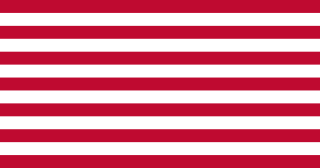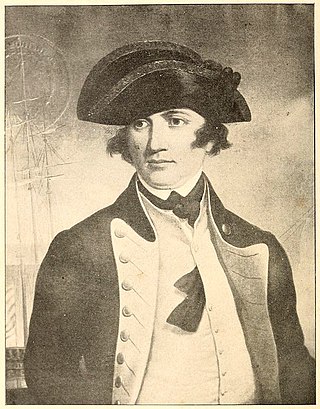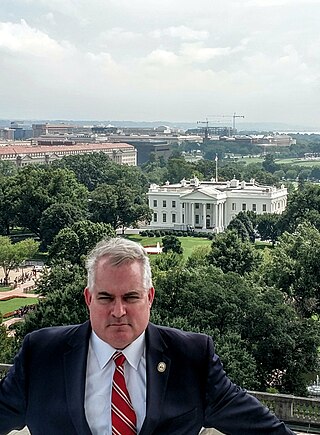Related Research Articles
A whistleblower is a person, often an employee, who reveals information about activity within a private or public organization that is deemed illegal, immoral, illicit, unsafe or fraudulent. Whistleblowers can use an variety of internal or external channels to communicate information or allegations. Over 83% of whistleblowers report internally to a supervisor, human resources, compliance, or a neutral third party within the company, hoping that the company will address and correct the issues. A whistleblower can also bring allegations to light by communicating with external entities, such as the media, government, or law enforcement. Whistleblowing can occur in either the private sector or the public sector.

Charles Ernest Grassley is an American politician serving as the president pro tempore emeritus of the United States Senate, and the senior United States senator from Iowa, having held the seat since 1981. In 2022, he was reelected to his eighth Senate term, having first been elected in 1980. He is the longest serving Republican in U.S. Senate history, having overtaken Orrin Hatch’s record in January 2023. He is also the sixth-longest-serving U.S. senator in history.

The Continental Navy was the navy of the Thirteen Colonies during the American Revolutionary War. Founded on October 13, 1775, the fleet developed into a relatively substantial force throughout the Revolutionary War, owing partially to the substantial efforts of the Continental Navy's patrons within the Continental Congress. These Congressional Patrons included the likes of John Adams, who served as the Chairman of the Naval Committee until 1776, when Commodore Esek Hopkins received instruction from the Continental Congress to assume command of the force.

Esek Hopkins was an American naval officer, merchant captain, and privateer. Achieving the rank of Commodore, Hopkins was the only Commander-in-Chief of the Continental Navy during the American Revolutionary War. The Continental Congress commissioned him as Commander-in-Chief of the Navy in December 1775.

The Congressional Gold Medal is an award bestowed by the United States Congress. It is the highest civilian award in the United States, alongside the Presidential Medal of Freedom. The Gold Medal seeks to impart, the highest expression of national appreciation for distinguished achievements and contributions by individuals or institutions.
In common law, a writ of qui tam is a writ through which private individuals who assist a prosecution can receive for themselves all or part of the damages or financial penalties recovered by the government as a result of the prosecution. Its name is an abbreviation of the Latin phrase qui tam pro domino rege quam pro se ipso in hac parte sequitur, meaning "[he] who sues in this matter for the king as well as for himself."

The Raid of Nassau was a naval operation and amphibious assault by American forces against the British port of Nassau, Bahamas, during the American Revolutionary War. The raid, designed to resolve the issue of gunpowder shortages, resulted in the seizure of two forts and large quantities of military supplies before the raiders drew back to New England, where they fought an unsuccessful engagement with a British frigate.

Joseph Maguire is an American officer who served as Director of the National Counterterrorism Center and Acting Director of National Intelligence under President Donald Trump. He retired from the United States Navy as a vice admiral in 2010 after 36 years of military service. Prior to retiring from active duty, he was the deputy director for strategic operational planning at National Counterterrorism Center (NCTC).

The history of the United States Marine Corps (USMC) begins with the founding of the Continental Marines on 10 November 1775 to conduct ship-to-ship fighting, provide shipboard security and discipline enforcement, and assist in landing forces. Its mission evolved with changing military doctrine and foreign policy of the United States. Owing to the availability of Marine forces at sea, the United States Marine Corps has served in nearly every conflict in United States history. It attained prominence when its theories and practice of amphibious warfare proved prescient, and ultimately formed a cornerstone of U.S. strategy in the Pacific Theater of World War II. By the early 20th century, the Marine Corps would become one of the dominant theorists and practitioners of amphibious warfare. Its ability to rapidly respond on short notice to expeditionary crises has made and continues to make it an important tool for U.S. foreign policy.

Kohn, Kohn & Colapinto is a Washington, D.C.-based international whistleblower rights law firm specializing in anti-corruption and whistleblower law, representing whistleblowers who seek rewards, or who are facing employer retaliation, for reporting violations of the False Claims Act, Foreign Corrupt Practices Act, Dodd-Frank Wall Street Reform, Sarbanes-Oxley Acts, Commodity and Security Exchange Acts and the IRS Whistleblower law.

The Whistleblower Protection Act of 1989, 5 U.S.C. 2302(b)(8)-(9), Pub.L. 101-12 as amended, is a United States federal law that protects federal whistleblowers who work for the government and report the possible existence of an activity constituting a violation of law, rules, or regulations, or mismanagement, gross waste of funds, abuse of authority or a substantial and specific danger to public health and safety. A federal agency violates the Whistleblower Protection Act if agency authorities take retaliatory personnel action against any employee or applicant because of disclosure of information by that employee or applicant.
The National Whistleblower Center (NWC) is a nonprofit, nonpartisan, tax exempt, educational and advocacy organization based in Washington, D.C. It was founded in 1988 by the lawyers Kohn, Kohn & Colapinto, LLP. As of March 2019, John Kostyack is the executive director. Since its founding, the center has worked on whistleblower cases relating to environmental protection, nuclear safety, government and corporate accountability, and wildlife crime.
Stephen Martin Kohn is an attorney for Kohn, Kohn & Colapinto, a Washington, D.C., law firm specializing in employment law. The author of the first legal treatise on whistleblowing, Kohn is recognized as one of the top experts in whistleblower protection law. He also has written on the subject of political prisoners and the history of the abrogation of the rights of political protestors.

Daniel P. Meyer is an attorney admitted in the District of Columbia and is currently the Managing Partner of the Washington D.C. Office of Tully Rinckey, PLLC, an international law firm headquartered at Albany, New York, and co-founded by Mathew Tully and Greg Rinckey.
Military Whistleblower Protection Act of 1988 (MWPA), as amended at title 10, United States Code, Section 1034, and elsewhere, is an American law providing protection of lawful disclosures of illegal activity by members of the United States Armed Forces.
Dr. David Paul Weber is an American criminalist, and the former Assistant Inspector General for Investigations at the U.S. Securities and Exchange Commission (SEC). He is the Principal Investigator of a $2.6 million grant by the U.S. Department of Health and Human Services, to test various white collar crime interventions concerning elder financial exploitation and high-tech crime. In the past, Dr. Weber was a whistleblower who reported allegations about foreign espionage against the stock exchanges, and misconduct in the Bernard L. Madoff and R. Allen Stanford Ponzi scheme investigations. In June 2013, the SEC settled with Weber his whistleblower protection and U.S. District Court lawsuits, paying him one of the largest federal employee whistleblower settlements ever. In 2014, In Bed with Wall Street author Larry Doyle named Dr. Weber as one of his "top 5 whistleblowers". On July 30, 2015, Weber was recognized by six United States Senators and one member of the House of Representatives at the First Congressional Celebration of National Whistleblower Appreciation Day. On August 5, 2021, Dr. Weber met with the President, Speaker of the House, and Senators at the signing of H.R. 3325, the awarding of the Congressional Gold Medal for those officers who lost their lives at the Capitol Insurrection, as he represents one of the deceased police officers and his widow. Ultimately, he was successful in having his client Police Officer Jeffrey L. Smith designated as having died in the line of duty by the District of Columbia in March 2022, and in August 2023 by the U.S. Department of Justice. Dr. Weber is now a forensic accounting professor at the Perdue School, Salisbury University. As part of his teaching duties, he is a special investigator for the Maryland State's Attorneys Offices in two adjoining counties, and a Virginia financial crimes state prosecutor in the neighboring Virginia county. He supervises his students who act as intern investigators on financial crime cases.
Richard Marven was a Revolutionary War naval officer who, along with Samuel Shaw, were instrumental figures in the passage of the first whistleblower protection law in the United States. The Continental Congress was moved to act after an incident in 1777, when Marven, a third lieutenant in the Continental Navy, and Shaw, a midshipman, were part of a group of sailors and marines who blew the whistle on Commodore Esek Hopkins, the commander-in-chief of the Continental Navy. The group accused Hopkins of torturing British prisoners of war. Marven and Shaw were from Rhode Island, as was Hopkins, whose brother was governor of the new state and had been a signatory to the Declaration of Independence. After being dismissed from the Continental Navy, Commodore Hopkins filed a criminal libel suit against Marven and Shaw in the Rhode Island courts.
National Whistleblower Appreciation Day is an annual recognition of whistleblowers whose actions have protected the American people from fraud or malfeasance. Each year since 2013, both the U.S. Senate and the U.S. House of Representatives have passed resolutions designating July 30 as National Whistleblower Appreciation Day. The 2021 Senate and House resolutions designating July 30 as National Whistleblower Appreciation Day were passed in July, with Senators Chuck Grassley (R-IA) and Ron Wyden (D-OR) leading the Senate resolution effort and Representatives Jackie Speier (D-CA), Carolyn Maloney (D-NY), and Kathleen Rice (D-NY) leading the passage of the House resolution.

Whistleblower Protection Act of 1778 was penned as a resolution title by the Second Continental Congress during the British occupation of the Province of Pennsylvania often referred as the Philadelphia campaign. The public law established a resolve for American colonists confronting;
References
- ↑ Kohn, Stephen M. (2011). The whistleblower's handbook . Guilford, CT: Lyons Press. p. 199. ISBN 978-0-7627-6373-3.
- 1 2 3 Washington, Government Printing Office (1708). "Journals of the Continental Congress: 1794 - 1799, pp. 732-33".
{{cite journal}}: Cite journal requires|journal=(help) - ↑ Grassley, Charles (August 1, 2013). "Honoring America's Truth Tellers". Grassley.Senate.Gov. US Government. Retrieved August 2, 2014.
- 1 2 Kohn, Stephen M. (June 13, 2014). "New York Times" . Retrieved August 2, 2014.
- ↑ "Journals of the Continental Congress, Thursday, July 30, 1778, Volume 11 pp 732-734". Library of Congress. Government Printing Office. July 30, 1778. Retrieved August 2, 2014.
- 1 2 Wilmoth, Mary Jane (August 1, 2014). "Senate Approved National Whistleblower Appreciation Day for Second Year". Whistleblowers.org. National Whistleblowers Center. Retrieved August 2, 2014.
- ↑ "Senators Honor Whistleblowers at First Congressional Celebration of National Whistleblower Day - Whistleblower Protection Blog". 11 August 2015.
- ↑ "Senators Honor Whistleblowers at First Congressional Celebration of National Whistleblower Day | Whistleblower Protection Blog". Whistleblower Protection Blog. 11 August 2015. Retrieved 2015-11-03.